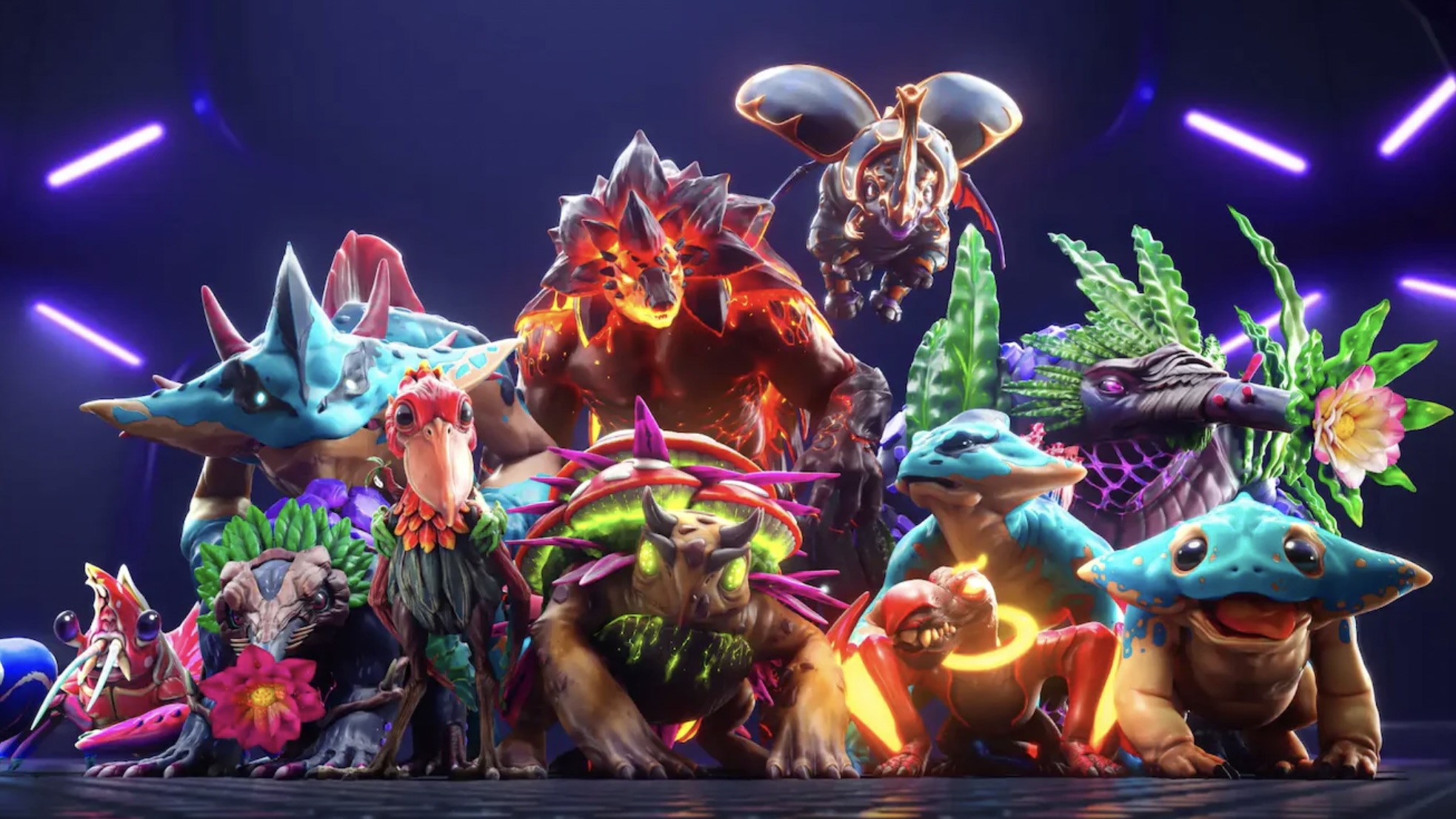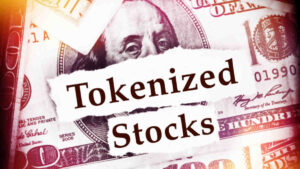‘All it takes is one big streamer to discover one fun game’: NFT gaming experts predict 2023

The Illuvium gaming ecosystem (above) is partnered with the Polemos GameFi platform. (Source: Illuvium.io)
Of all the crypto sectors, NFTs and NFT gaming are possibly the most easily understood from a use-case and utility perspective.
Like the rest of the market, however, they endured a torrid year in 2022 in terms of token valuations.
Will 2023 be any better? Stockhead grabbed insights from four people best placed to make a prediction or two.
‘Asset ownership will power new models of player interaction’
– Richard McLaren, Co-CEO of the Polemos GameFi platform
Hi Richard. Do you have any predictions for NFT/Web3 gaming narratives in 2023? Has the sector now moved on from a “play-to-earn” focus?
Games have to be fun to be successful, and they have to be easily accessible to enjoy wide adoption. Expect both of those statements to be proven (if any proof were needed) in 2023.
We see games moving away from upfront friction of having to have a wallet to play, for example, and certainly away from promotion as primarily an “earning” vehicle.
Look for crypto free onramps for players, free to play, a Darwinian contest amongst widely different game economies and asset ownership front and centre with the exposed wires of blockchain integration hardly visible if you can see them at all.
That said, the blockchain engine of asset ownership by players will power new models of player interaction and community building around the best games and we can’t wait to see how that evolves.
Do you see mainstream gaming and esports coming further into the Web3 gaming fold in 2023/24?
Success by just one or two Web3 games with asset ownership at their core will have the cat out of the bag and mainstream games will follow, even if only defensively initially.
I would be surprised if asset ownership responses (renting, trading etc) were not already in the wings for the bigger studios and franchises.
Can the froth and hype to NFTs and NFT gaming return in 2023? Or do you think it’s more likely to be another “builder’s year”?
Good games and good content generate real engagement and therefore real value. So we expect fundamentals to be back in fashion and for value to concentrate around a small number of breakout successful games by late 2023 early 2024.
Projects delivering what mainstream gamers want as they get engaged are going to have enormous upside.
What are some of the specific projects/games that you think will deliver in 2023 or in coming years?
We are pretty excited about a number of games and we think all our partners have potential. Personally, though, as a FPS player, I’m looking forward to Shrapnel.
Other team members are bullish on Apeiron, Blocklords and Illuvium.
Crypto 2022 – it was good, bad, and butt ugly. What are your feelings – were there any silver linings to be found as far as Polemos is concerned?
As a GameFi platform we are not directly exposed to market sentiment in crypto or the FTX contagion, however, we have been affected by game delays and expect there to be some knock-on effect into 2023.
The silver lining is that we have an amazing group of investors and support and have been able to use this year to expand the range of our product offerings, add support for multiple chains and get match fit across some quickly built capabilities and teams.
So we’re pretty bullish on our ability to deliver next year as sentiment picks up and we are excited by a number of games in the pipeline.
‘No recovery in 2023 but 2024 and 2025 could be big’
– John Stefanidis, CEO and Co-Founder of NFT gaming platform Balthazar
Hey John. Do you think there’s a chance we’ll see the hype and froth return to the NFT sector in 2023 or 2024? Or do you think it’s evolving into a more sophisticated market that might not see such crazy returns?
I think definitely by 2024 you’re going to start to see hype and froth again for NFTs but not in the same format. I don’t think people will buy PFP NFTs and expect it to increase in value one thousand times.
But I do think we will start to see some really creative applications and the sophistication of the space will definitely increase.
Do you think the crypto market can recover in any meaningful way in 2023?
I don’t think there’s going to be a recovery this year. I think it’s going to take a little longer for people to start to build applications, distribute those applications, for people to start to use those applications.
I feel like there’s still more blood to shed from Alameda, FTX and others. There is probably a year’s worth of recovery just from that. And the current macroeconomic conditions will likely continue, which is a concern for any form of tech asset. I hope there’s a bull run in 2023, but I highly doubt it. I think it’s more likely it’ll be another rough year.
But… I think 2024 and 2025 could be big years for the crypto and NFT industry.
What do you think needs to happen for sentiment to improve for crypto and the NFT gaming sector this year?
The true value of Web3 is in the benefit of decentralisation. Innovation will come when decentralised technology people are building solves a problem more effectively than the current centralised solution.
It’s just like when the internet was invented and people started using email instead of writing letters. Over time, the technology evolved and people started to adopt it. That’s what we need to see with Web3. For example, Chainlink Oracle, where you’ve got products such as verifiable randomness, objective, accurate data. Things that are only solvable through decentralisation.
Gaming is also another good example where people own their asset digitally so you can play online with that asset, you own it, you can trade it, you can parade it around. When people start to innovate and decentralisation starts to do things better, it’s a big win.
What positives, if any, did you take from the year just passed in crypto?
There were many silver linings for the crypto and NFT markets in 2022. I think the issues with centralisation and a lack of regulation for crypto exchanges and digital asset lenders such as FTX and BlockFi educated a lot of people in terms of being made more aware of the risks. People are being tighter with their security of their digital assets, and where they are storing their assets.
We also saw a lot of cool emerging applications of the technology like play-to-earn gaming. These trends will continue to develop and mature the market into 2023.
Are there any particular projects or narratives within the NFT and NFT gaming sectors that you’d like to call out and that you can envisage strengthening from here?
I’m really excited about what we’re building at Balthazar. We’re focused on infrastructure for Web3 gaming with our software development kit (SDK) called Babylon. That’ll allow more Web3 games to launch into the market.
We’re starting with gaming to solve the problems of easy onboarding, opening accounts, in-game marketplace, peer-to-peer transactions, Web3 inventory management systems and on-chain in-game transactions in real time.
We will expand into solving problems around password and credential recovery, which will unlock categories such as DeFi, and other products that are really good but hard to access for Web2 users. And products that still require decentralisation.
Is there anything else you’d like to share or note about the state of NFTs or NFT gaming?
NFT gaming is growing quickly in terms of the number of games that are entering the space and the number of gaming funds and funds being raised.
For instance, according to the PWC H1 2022 Global Cryptocurrency Mergers and Acquisitions Fundraising Report (October 2022), NFT and metaverse projects received one-third of all deals in H1 2022 (34%), compared with 4% in H1 2021. Also, crypto fundraising in 2022 outperformed 2021.
‘There will be a major shift in the quality of Web3 games’
– Mike Merritt, Chief of Operations at Fancy Studios,Web3 “hyper casual games” builders
Crypto 2022, Mike – twas a pretty rough ride for most, right?
It’s true that 2022 was tough for a lot of people, and I sincerely feel for those on their first go round in crypto. These times can seem very scary and cause people lots of pain and problems.
That being said, if one pays attention, there are plenty of smart projects and smart people busy building the future of finance, ownership, art, gaming, and I’m sure other stuff that will be a surprise to us all.
What’s your take on where Web3/NFT gaming is heading in 2023?
The Web3 gaming sector is maturing fast. What I think will be the major shift in focus is the quality of the actual games. There will be games that are so fun and amazing that they will inspire a focus on game asset ownership over “play to earn” mechanics, and this is definitely where Fancy is focused for the future.
By creating fun and engaging games that make people excited to “pay and own” assets in, the next wave of Web3 enthusiasts and curious Web2 gamers will be drawn in.
Any other crypto-related predictions for this year?
I lack a crystal ball or any other means to accurately divine the future, but my gut tells me that interest will be picking up all throughout this coming year.
Whether that is enough to cause the kind of hype and fervour seen over the last few years or not, I couldn’t say.
But I believe we will at least see some excitement return as we continue to build and that excitement will grow will continue to grow into a healthy and frothy swirl of interest and activity, bigger than before.
‘All it takes is one big streamer to discover one fun game’
Ken H, Principal of Mechanism Capital, an investment firm specialising in DeFi and Web3 gaming
Hi Ken. Is “play to earn” a dead concept for most of the Web3 gaming industry? If so, what narrative replaces it?
Play to Earn is now better understood as more of a user-acquisition strategy than a model for sustainable repeat business.
The general direction the space is moving towards is centered around asset ownership, with a focus on player-owned open economies. NFTs are taking on characteristics and functions of battle passes, cosmetics, and consumable items.
I think NFTs or tokens provide a technical foundation for the natural evolution of Free to Play in the future, though I don’t think a clear model has materialised quite yet.
We need a Web3 breakout success to land first before the industry will have the volume to refine experimental models at scale.
Do you forsee any positivity in the year ahead for the NFT market and NFT gaming sub-sectors?
I can’t speak to the timing of when the NFT market recovers given the current macro backdrop, but we’ve had about a year since the barrage of projects that were funded during the height of the Web3 gaming boom, despite the froth a lot of quality teams and games created and funded.
There are quite a few promising titles that will launch in the next year, and likely many more we’ve not heard about from indie developers. I doubt something doesn’t arise in the mid term – all it takes is for one big streamer to discover one properly fun game.
From a flows perspective, it helps that NFTs generally don’t have supply overhangs where many tokens are pressured by VC investors or emissions from liquidity incentives.
Thus far, the launch of the APE token launch proved to be a financial success and a major milestone that is still early on their roadmap. I would be surprised if other projects are not planning around that same playbook.
If it’s fair to say the level of interest in NFTs and metaverse has dropped off with the wider public, do you envision that returning in force and froth again?
Absolutely, NFTs/gaming/metaverse were the primary areas that captured the attention of both traditional institutions and mainstream retail. They are also some of the few Web3 applications that can be built on external demand and not self-referencing financial shuffling.
Entertainment and content also tend to be somewhat more resilient to recessions or market downturns.
If anything, I think related areas will bounce back sooner than most other applications. Froth will always be present in any growth period, but the next one will hopefully be built upon a much stronger foundation of quality products and content.
The responses in this article were edited lightly for clarity. None of the views expressed should be taken as financial advice.
Related Topics
UNLOCK INSIGHTS
Discover the untold stories of emerging ASX stocks.
Daily news and expert analysis, it's free to subscribe.
By proceeding, you confirm you understand that we handle personal information in accordance with our Privacy Policy.








